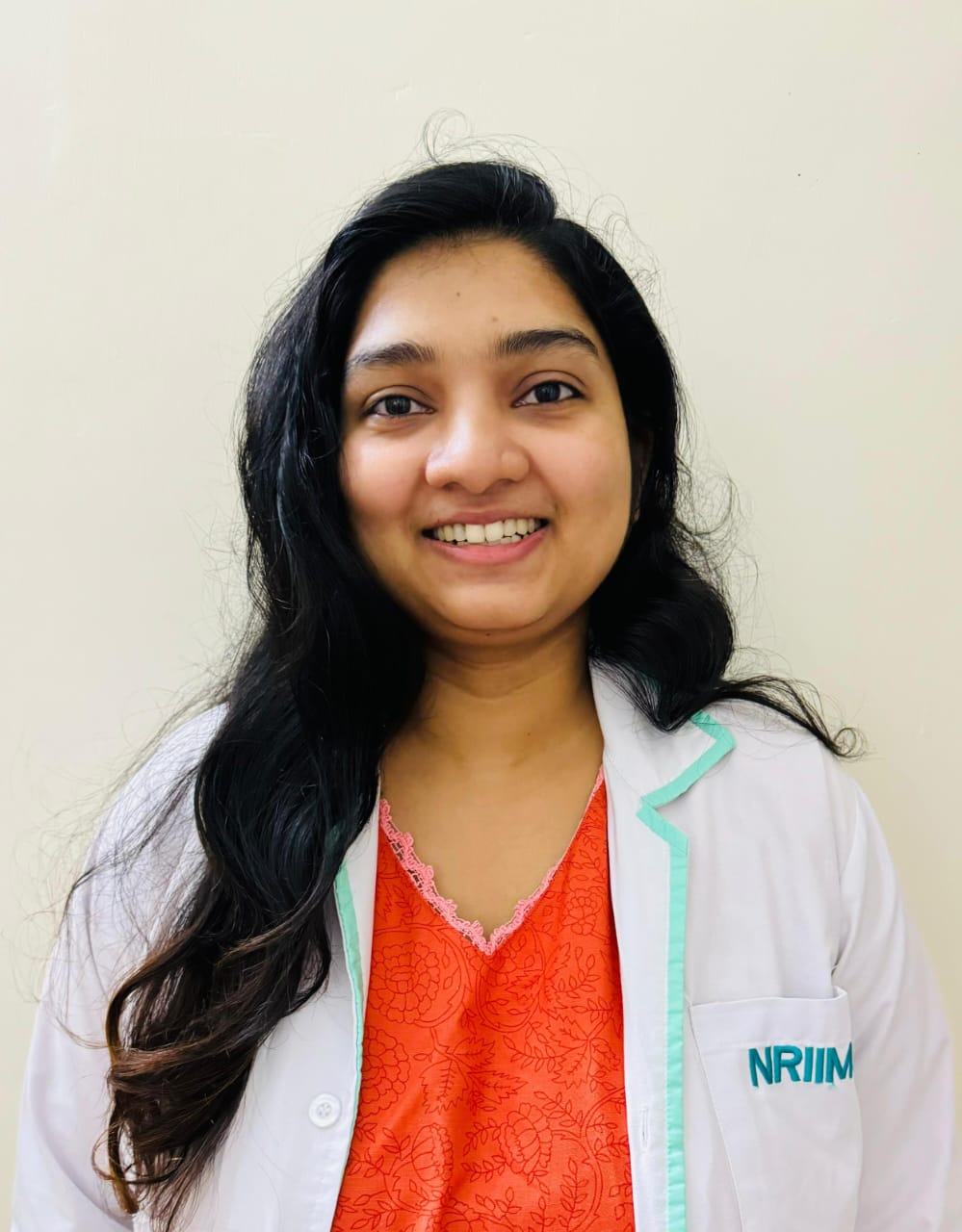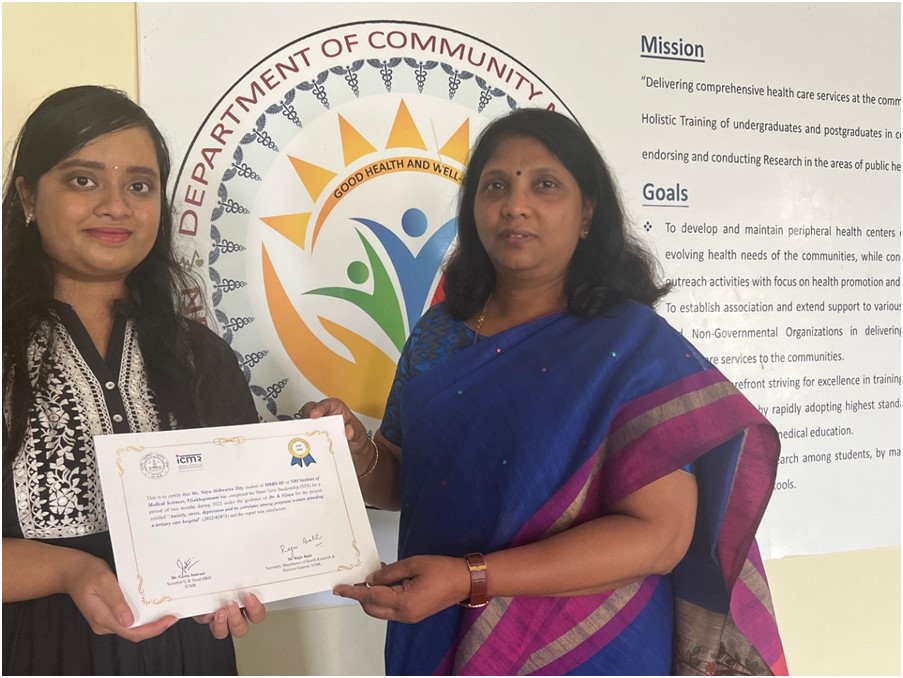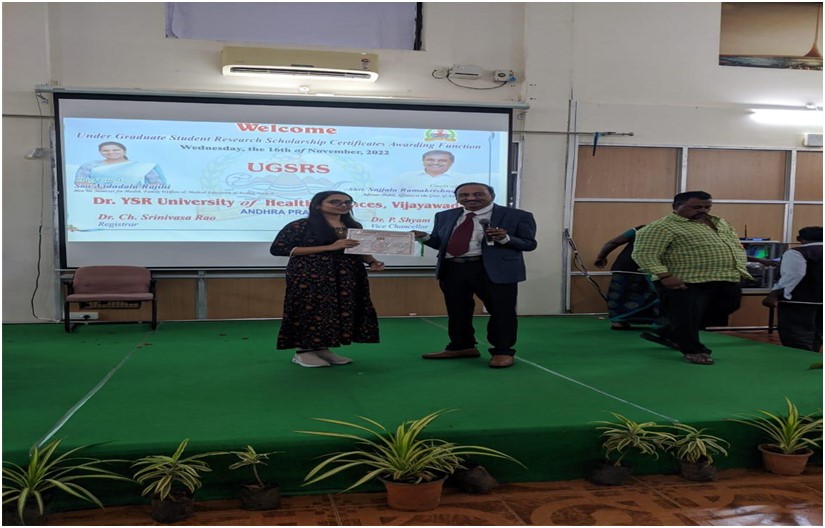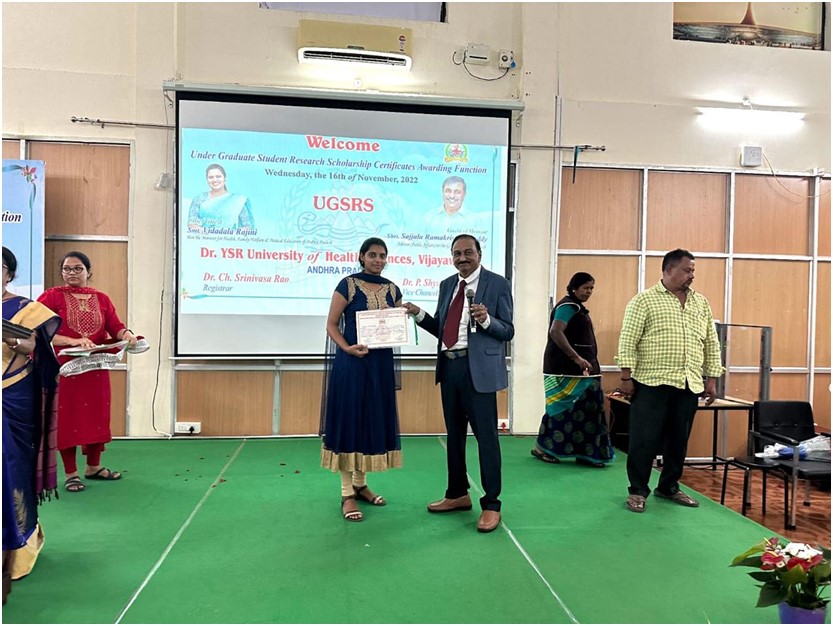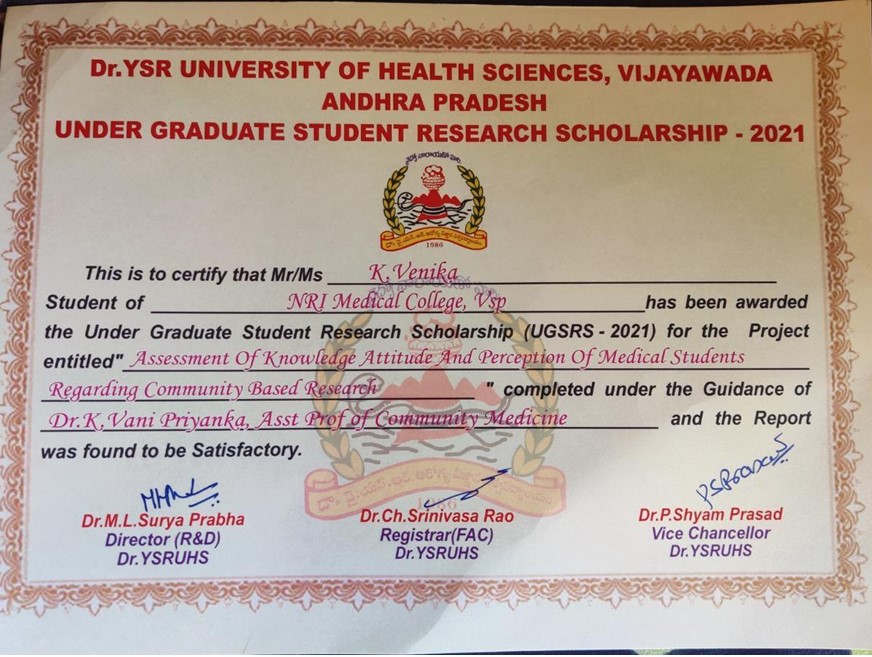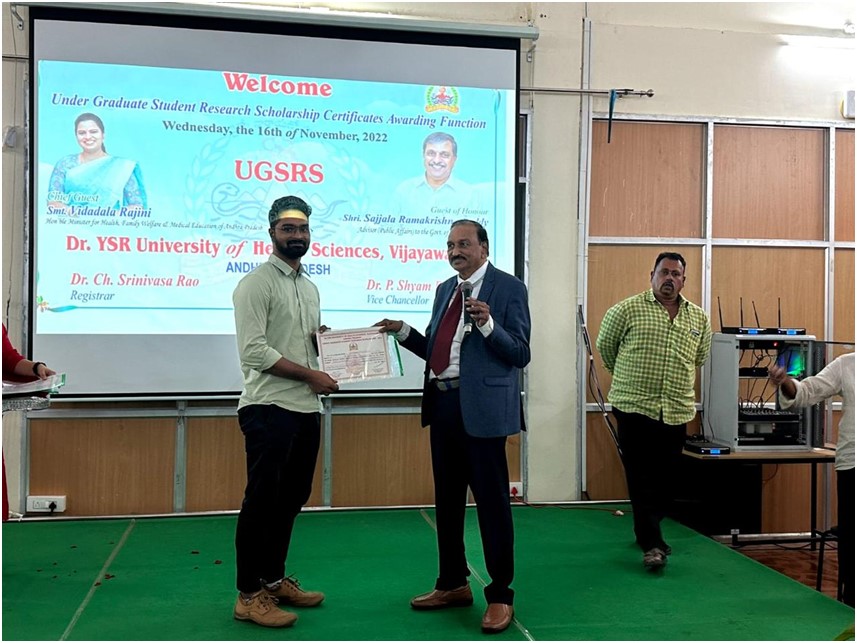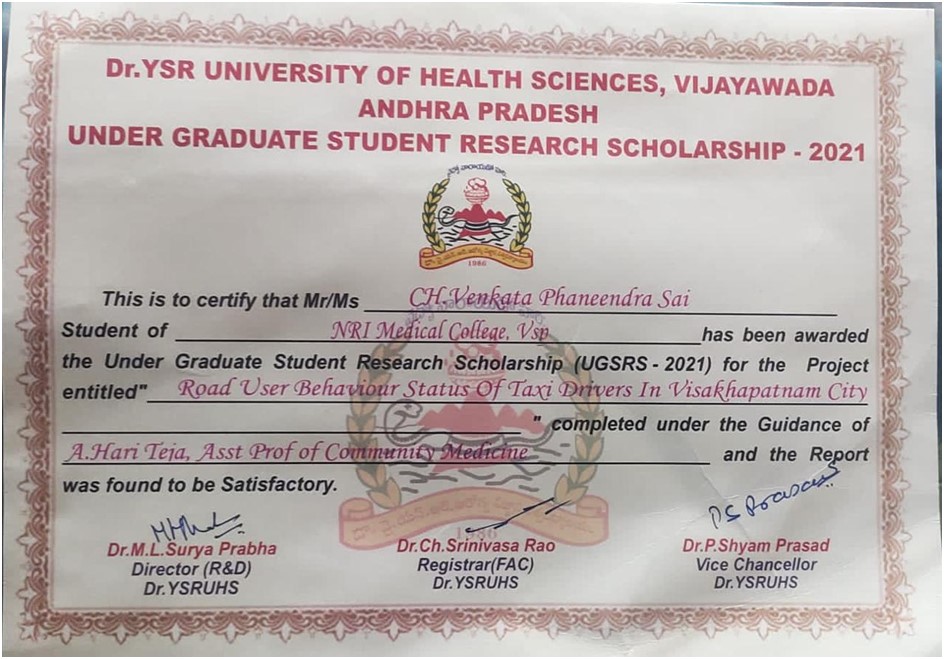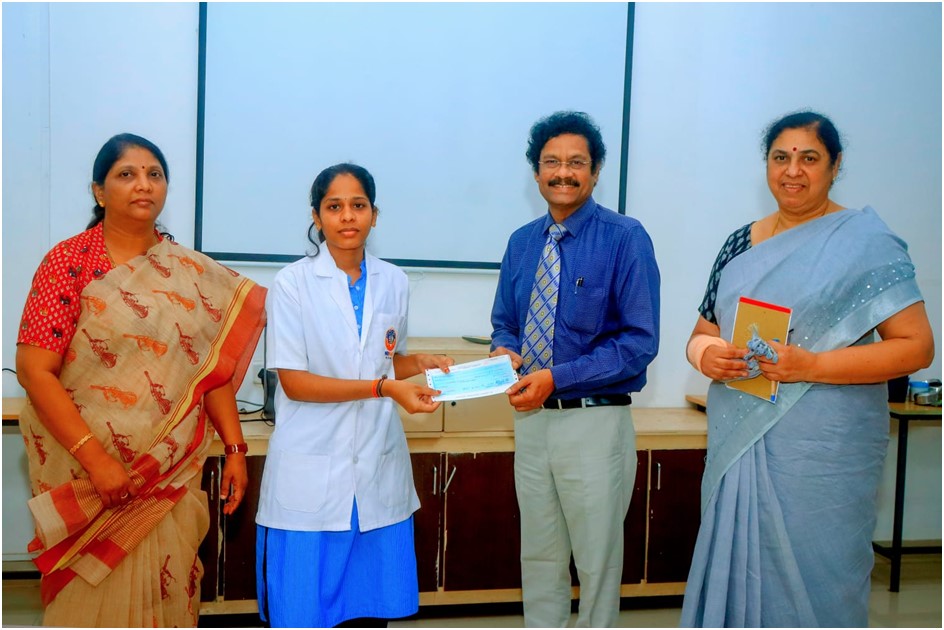About Community Medicine
Community Medicine is the branch of medicine concerned with the health of populations. It strives to protect and promote the health and well-being of the community through the Primary Health Care approach.
Health needs of populations are measured and appropriate strategies are developed to improve the health status of the community through health promotion, disease prevention and health protection.
Training in Community Medicine aims at nurturing Primary Care Physicians who can recognize and mange common health problems in the community. The Community-oriented Primary Care Physician will have the ability to identify, prioritize and manage the health problems of the community. He / She would be an effective leader of the health team at primary care level.
The Community Physician demonstrates excellence in academics, health research, and leadership skills. He/she is instrumental in development of public health policy, design, implementation and evaluation of health programs and applies them to a broad range of community health issues.
Students of this subject will have to apply the knowledge they have gained in several areas of medicine for the benefit of the community. They are taught the preventive, curative and promotive aspects of every illness. They are also encouraged to involve in the community during their Compulsory Rotatory Residential Internship (CRRI).

Mission
“Delivering comprehensive health care services at the community level, Holistic Training of undergraduates and postgraduates in community health, endorsing and conducting Research in the areas of public health importance”.
Goals
- To be at the forefront striving for excellence in training, in the field of community health, by rapidly adopting highest standards of practice and newer initiatives in medical education.
- To instill interest in research among students, by making accessible, relevant resources and tools.
- To develop and maintain peripheral health centers catering to the evolving health needs of the communities, while conducting various outreach activities with focus on health promotion and prevention.
- To establish association and extend support to various Governmental and Non-Governmental Organizations in delivering high quality health-care services to the communities.
Traning
“Enriching the students learning experience”
The Department of Community Medicine, NRIIMS since the inception has been constantly evolving their training programs that are student centred, while providing an enriching learning experience. These comprehensive training programs that are being offered to both MBBS - under graduates & MD Community Medicine - post graduates are not only aimed at holistic understanding of community health aspects, but also in making them future ready professionals in dealing with public health. Also, making the post graduates an integral part of department functioning is one of the critical factor in imparting qualities and skills, that are needed for them to be leaders and teachers. Another area the department strive for on a sustained basis is to inculcate 21st century skills among the students.
Foundation course
Giving an overview of Community Medicine for the students of MBBS Phase - I, laying the strong
foundations for holistic understanding of community health aspects and in imparting required skills to
be future ready.
Community Diagnosis
Paving the way for the MBBS Phase - II students to develop the skills and competencies in research and
communication, to be relevant in the modern public health systems /approaches, understanding the
health needs of a community as a whole via Community Health Needs Assessment (CHNA). This program
primarily takes an end-end approach in the form of Family Health Surveys, starting from house-house
visits with consent from beneficiaries to developing a feasible intervention based on CHNA by the
students.
DOAP sessions
Objective based sessions, facilitating the students to develop competencies in various domains such as
nutrition, immunization, MCH, health care delivery & management among many others.
Clinico-Social Case Studies
Primarily field-based sessions for the MBBS Phase -III students enhancing their holistic understanding
of a disease in the spectrum of health, which is the most important pre- requisite of an Indian
Medical
Graduate to be a competent Community Physician. Also, Family Health Study training for postgraduates
is
another most important aspect in making them future ready public health professionals.
Other programs
Visits to public health facilities, Community and class-based tutorials, Self-Directed Learning (SDL)
guidance, Integrated classes, hands on training sessions, Objective structured Practical Examination
(OSPE), Problem Based Learning (PBL), Journal clubs & seminars, extra-curricular academic events,
observation of important health days, Family Adoption Program (FAP), experiential learning activities,
research mentorships & guidance, special curricular support.
Key Achievements
Outreach
“Reaching out to the communities”
Outreach services has been the mainstay among multiple activities by community medicine department. These services are primarily being provided through the peripheral centres under the department – Rural Health Training Centre (RHTC) & Urban Health Training Centre (UHTC).
Services across the comprehensive health care spectrum (preventive, promotive, curative & rehabilitative) in the form of outpatient, inpatient & referral services, emergency health care, health awareness & education campaigns, school health programmes are provided on a regular basis. Important health days are observed all along the year, supplementing the regular activities. Also, noteworthy of mentioning, the department constantly create and provide opportunities to the undergraduates & postgraduates to be part of all the activities, enriching their learning experiences, while making them competent to operate on an independent basis in the future.
Research
“Instilling research culture”
The Department of Community Medicine has always been at the forefront in promoting and endorsing research in the areas of public health importance. With continuously reflecting on their mission, the faculty have been relentless in instilling research interests among the students and in constantly guiding/mentoring them. Also, spending quality time with the students trying to understand their research interests and giving liberty to the students to come up with their own research questions, has been the key approach.





